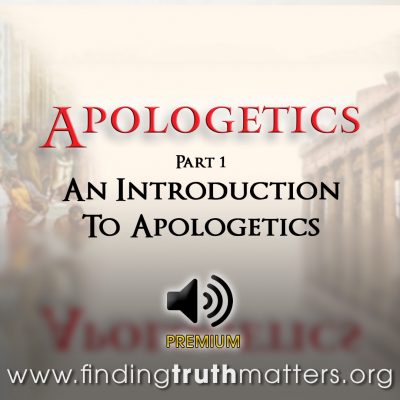home > articles > The Tragedy of Suicide
 Suicide hurts. It is motivated by pain, but causes much greater pain. For those affected by suicide the guilt and anguish it produces is almost unbearable. But since suicide is mentioned in the Bible, how can we know that it is wrong? How should we regard the sinfulness of suicide? Is it unforgivable? How can we help avoid suicide? What should those affected by it know after it’s happened?
Suicide hurts. It is motivated by pain, but causes much greater pain. For those affected by suicide the guilt and anguish it produces is almost unbearable. But since suicide is mentioned in the Bible, how can we know that it is wrong? How should we regard the sinfulness of suicide? Is it unforgivable? How can we help avoid suicide? What should those affected by it know after it’s happened?
The funeral celebrant rang me to warn me. He was used to dealing with sensitive situations but this one had a few extra layers of complexity. He decided to get me involved. He outlined the story to me and then told me the purpose of his call. When a loved one dies there is often a measure of guilt for those left behind. But when the death is caused by suicide that guilt is compounded. Suicide hurts. The funeral celebrant told me that a young man with a diagnosed mental illness, who had professed Christianity, had taken his own life and his devout mother (who we will call “Betty”) was devastated. The celebrant told me that Betty would ring because her guilt was beyond his expertise due to her Biblical understanding of suicide.
She did ring within minutes of that call. I listened to her story. Betty told me about the trials her son had endured throughout his life and how relieved she was when he had become a Christian. But after he left for an interstate city he drifted away from his Christian commitment. Things went from bad to worse for him and he could take it no longer. Without warning he committed suicide. And now Betty was unfairly grieving for her son. But her grief was aggravated because she considered that her backslidden son had died an apostate (rejecting God) and had committed a sin impossible to repent from. Her distress was obvious and heartfelt even from the other end of the phone-line. I spent some time talking with Betty on the phone. In a moment I will reveal what I shared with her that relieved and comforted her.
Suicide affects the down-and-out and the up-and-coming. The destitute and the affluent are not immune from its deceptive lure. Deceptive because it seems to offer a way out – an escape – from troubles, but it doesn’t. A colleague of mine shared with me how his brief holiday had not quite been the time of rest and refreshing he had anticipated. A friend of his had rung while standing on the edge of a large bridge. She had rung to say ‘goodbye’. She was about to jump. Thinking rather quickly my colleague asked her, “Are you sure you won’t be taking your troubles with you into the next life? Can you be absolutely sure?” This question haunted her in those next few perilous minutes. His question raised an issue she had not even considered. The thought of taking your troubles with you for all eternity seemed like a hell she was not prepared to risk. He asked whether it might not be better to explore other means of dealing with her troubles. While talking with her on the phone he contacted the Police who went directly to her and gave her immediate assistance in getting psychological help. Unfortunately though not all suicide attempts are prevented.

“I have a feeling I shall go mad. I cannot go on longer in these terrible times. I shan’t recover this time. I hear voices and cannot concentrate on my work. I have fought against it but cannot fight any longer.”
Virginia Woolf, 1882-1941
After this suicide note was written by one of Britain’s most successful novelists she filled her pockets full of stones and walked into the Ouse River adjacent to her Sussex home and drowned herself.
 Suicide never resolves issues; it leaves them permanently unresolved. It creates pain rather than heals pain. It leaves behind a dagger-wound of guilt and shame that time rarely heals. For these reasons some counsellors have described suicide as the ultimate act of selfishness.
Suicide never resolves issues; it leaves them permanently unresolved. It creates pain rather than heals pain. It leaves behind a dagger-wound of guilt and shame that time rarely heals. For these reasons some counsellors have described suicide as the ultimate act of selfishness.
When I first studied this topic as part of a degree in Biblical Studies, that I did many years ago, I was surprised to find suicide mentioned in Scripture. The expression “falling on your sword” is found in the Bible describing one method used by those who committed suicide. King Saul and his armour bearer died this way.
Then Saul said to his armor-bearer, “Draw your sword, and thrust me through with it, lest these uncircumcised come and thrust me through, and mistreat me.” But his armor-bearer would not, for he feared greatly. Therefore Saul took his own sword and fell upon it. And when his armor-bearer saw that Saul was dead, he also fell upon his sword and died with him.
First Samuel 31:4-5 ESV
But this is a peculiar circumstance and rarely the circumstance that most people contemplating or committing suicide find themselves. King Saul and his armour-bearer were facing inevitable and imminent murder. This is worth noting. I’m sure that there are many more tragic examples that war-veterans could tell of their former comrades forced into similar circumstances. The little known English missionary, John Huntington, who served as the first Anglican Bishop of Uganda in the 19th century preached tirelessly in outlying villages. While he enjoyed amazing ministry fruitfulness, his last day, at the age of 36, met with hostility from the elders of one village. They angrily approached him with spears and knifes to execute him. He implored them for the right of final words and choice of death. His stirring farewell went something like – I willingly lay down my life for the cause of the One who willingly laid His life down for me. He then handed the natives his revolver and asked for a quick death instead. They obliged and shot him in the head. One might argue that this was a form of suicide but one would be similarly hard-pressed to regard this as anything other than martyrdom. (As a postscript to this story, a Cathedral was built on this site which held some 6,000 converts brought to the Lord by Huntington’s ministry.)
 Soldiers entering into the heat of an inevitable bloodbath may be said to be committing suicide. But no-one would call them selfish. In fact, at their memorials the celebrant often quotes Christ saying no man has greater love than to lay down his life for his brothers...to honour these tragic deaths. Similar circumstances might be used to describe situations where a parent rescues a drowning child in hazardous waters only to lose their own life. But this type of tragic death was not the purpose of the phone call Betty. Her son had not given his life, he had taken it!
Soldiers entering into the heat of an inevitable bloodbath may be said to be committing suicide. But no-one would call them selfish. In fact, at their memorials the celebrant often quotes Christ saying no man has greater love than to lay down his life for his brothers...to honour these tragic deaths. Similar circumstances might be used to describe situations where a parent rescues a drowning child in hazardous waters only to lose their own life. But this type of tragic death was not the purpose of the phone call Betty. Her son had not given his life, he had taken it!
SUICIDE UNFORGIVABLE?
Betty had a very distorted view of salvation. Her concept was that salvation was the result of human effort to accept the grace of God. She believed that salvation could be relinquished if a believer sinned. Therefore, in Betty’s mind, if a sin was not repented of it would cancel out a person’s salvation. I shared with her that salvation was entirely by grace. Our efforts do not save us. Betty assured me that her son had had a genuine conversion experience to Christ. I also assured her the Bible only lists one unforgiveable sin: blasphemy of the Holy Spirit (the rejection of the Holy Spirit’s work of regeneration). The grace of God is perhaps grander than many Hyper-Arminians might realise. What I assured this grieving mother was that no man determines whether another is saved or not. Neither I nor anyone else can determine whether someone is saved or damned, but we can determine from Scripture that all who come unto Me I will in no wise cast out (John 6:37). The grace of God covers more sin and human failure than semi-pelagians (someone who believes that salvation is faith in Christ plus our efforts to be righteous) know. This poem, written anonymously, makes this point rather beautifully-
I was shocked, confused, bewildered
As I entered Heaven’s door,
Not by the beauty of it all,
Nor the lights, not its decor.
But it was the folks in Heaven who made me sputter and gasp–
the thieves, the liars, the sinners, the alcoholics, and the trash.
There stood that kid from 7th grade who swiped my lunch money twice.
Next to him was my old neighbour who never said anything nice.
Herb, who I always thought, would rot in hell,
was sitting pretty on cloud nine looking incredibly well.
I nudged Jesus, “What’s the deal?”
“I’d love to hear your take”
“How’d all these sinners get up here?”
God must have made a mistake!
“and, why is everyone so quiet, so sombre?”
“Please! Give me a clue.”
“Hush child,” said He, “they are all in shock;
no one thought they would be seeing you!”
“JUDGE NOT”
Author Unknown
The Biblical doctrine of the grace of God destroys the notion that suicide or any other sin is unforgivable! This does not necessarily mean, as I explained to this mother, that everyone who professed faith in Christ and committed suicide died in a regenerated state (saved). But it at the least counters the idea that suicide automatically causes a person’s salvation to be forfeited. At least we can be assured of is: that genuine salvation is not easily lost. Therefore, the family and the friends of those left in the wake of a suicide have some hope that they will be reunited with their loved one in Heaven. I stressed this point to console this mother.
CULPABILITY
One of the most insidious forms of suicide is self-directed-euthanasia. Some people find themselves in a situation where they are in intolerable pain. Thank God for pain-killing medicine, medical technology, hospice care, and caring medical personnel. Sometimes these things though merely prolong the inevitable. There needs to be a distinction between active and passive, and voluntary and involuntary, euthanasia. Passive, voluntary, euthanasia is where a person has an incurable, terminal condition and refuses medical treatment which results in their death. Active, involuntary euthanasia is where someone else makes the decision to end someone else’s life against their will. This kind of euthanasia in morally wrong. But there are ethically questionable forms of euthanasia in between these two poles. For a family member to agree to stop medical assistance for a terminally-ill, incurable, loved one which would lead to their certain death is quite different to actively overdosing them against their will to hasten their death.
 Betty’s son was less culpable for his suicide due to his diagnosed mental disorder. Mental illness is generally not well understood by those privileged to enjoy more ups than downs. One person recently confided in me that they had battled with suicidal thoughts for years. They went to their doctor who diagnosed clinical depression. They were prescribed medication. Almost immediately they recovered and felt like a heavy fog had been lifted from off their mind. Their comment to me was “So this is what everyone else feels like!” The thoughts of suicide left. But after a while, they began to feel increasingly guilty for having to take medication to feel “normal”. They decided to come off their medication. After they did, the fog returned and so did the thoughts of suicide. But they could now rationalise that their feelings were not “normal” and should be suppressed and managed.
Betty’s son was less culpable for his suicide due to his diagnosed mental disorder. Mental illness is generally not well understood by those privileged to enjoy more ups than downs. One person recently confided in me that they had battled with suicidal thoughts for years. They went to their doctor who diagnosed clinical depression. They were prescribed medication. Almost immediately they recovered and felt like a heavy fog had been lifted from off their mind. Their comment to me was “So this is what everyone else feels like!” The thoughts of suicide left. But after a while, they began to feel increasingly guilty for having to take medication to feel “normal”. They decided to come off their medication. After they did, the fog returned and so did the thoughts of suicide. But they could now rationalise that their feelings were not “normal” and should be suppressed and managed.
But not all sufferers of mental illness are so fortunate. For them there are no such lucid moments, despite the ingestion of the best prescription drugs. Sometimes the thoughts of suicide are the result of such intense mental anguish that they can no longer see any hope of relief or point in going on. Scripture presents examples of this including: Ahithophel (2Sam. 17:23) and Judas (Matt. 27:5), whose mental despair was so great that they saw no alternative to suicide. My consolation to this mother included the concept of God’s infinite mercy and grace in allowing for her son’s mental incapacity. I have been by the bedside of the dying who have been severely impaired by massive amounts of mind-altering pain-killers who have had little control over the statements they were uttering. Sometimes even the most devout dying saint has been given to swearing and insults in a state of pharmaceutically induced psychosis. I’m reasonably sure that the grace of God extends to people in such situations who surely can not be held culpable for their out-of-character behaviour. If this is the case then it’s also reasonable to suggest that clinically-depressed people who find themselves going out of their mind due to excessive drug abuse may also not be entirely culpable for their fatal actions. I have stressed ‘may.’ We can not think that someone will automatically be saved for heaven just because their drug-abuse deprived them of total responsibility for their actions. But, at least it opens up the possibility that Christians who take their lives while affected by a diagnosed mental illness or in a state of drug induced surrealism may not be culpable and therefore do not automatically lose their salvation merely because they commit one final mistake.
ALTERNATIVES TO SUICIDE
 One of my greatest fears in writing this is that a Christian may distort what I have written and use it to justify their suicide. Nothing I have written justifies committing suicide. I have attempted to show compassion in seeking to understand the turmoil and inner anguish that someone who takes their life experiences. But I do not condone their actions.
One of my greatest fears in writing this is that a Christian may distort what I have written and use it to justify their suicide. Nothing I have written justifies committing suicide. I have attempted to show compassion in seeking to understand the turmoil and inner anguish that someone who takes their life experiences. But I do not condone their actions.
I would therefore like to offer some alternatives to suicide for any Christian (or non-Christian for that matter) feeling that there are no alternatives to suicide.
1. Even though it feels like no-one cares, they do.
You are not alone. Talk to your pastor. If you don’t have one, open the phonebook and find one near you. You might think that your pastor is too busy to even notice you. I could almost guarantee you that this is not true. Nearly every pastor I have met thinks about his people prayerfully almost all the time. But not all pastors are mind-readers! The same thing goes parents, siblings and especially your spouse. Talk with them and let them know how you’re feeling.
2. If you are constantly ‘down’ and battling continually with thoughts of suicide, consult a professional.
This is not normal. Your doctor needs to know about this. They are usually trained to help in these situations. If your GP can’t help they will refer you to a caring professional who can.
3. Take care of yourself.
The world looks a different place when you feel well. Sometimes this is out of your control. But doing something as simple as cutting out alcohol (a depressant), and becoming physically active can radically change your whole outlook. The principle of the Sabbath not only means rest but it also means ‘no work’. What do you do when you’re not doing what you have to do? Do you enjoy leisure time?
Caring for people who are potentially suicidal begins by listening. Most people considering suicide feel that there is no-one they can talk to. Letting people know that they can talk if they want to talk can be a great help to someone suffering suicidal thoughts. It’s no guarantee that they will talk though, but these sincere offers are nearly always welcomed. Taking seriously people’s soul-pain rather than simply dismissing their troubles as “silly” or “stupid” shows healthy concern.
DEALING WITH A SUICIDE
I hope you never have to. But if you do, it is never your fault. People are responsible and accountable for their own actions and this includes suicide. It is an incredibly selfish action. It is often used as a threat to manipulate friends and family. This is called emotional-blackmail. A friend of mine recently shared how his grown son had phoned him from interstate and threatened to commit suicide if his dad didn’t give him a certain amount of money. The dad’s response was “Goodbye son, I’ll miss you” and then hung up on him. The father immediately burst into tears wondering whether he had done the right thing. His anguish was almost unbearable. He honestly didn’t know if he would ever see his son again. That was about five years ago and today he and his son are as close as they’ve ever been. The dad still doesn’t know if he made the right decision or if he would make the same decision again, but in this instance he refused to be emotionally blackmailed.
When the person who has committed suicide was a professing Christian who has reduced culpability for their actions, we should not consider that their suicide is an unforgivable sin (even if they can not repent for it). We should acknowledge that God is a just and merciful God whose grace extends beyond human tolerance and leave people’s ultimate destinies in his hands. This was the theological counsel I gave Betty.
© Andrew Corbett, 20th October 2006
-
Sale!

5 Things We Need To Do To Break Our Church’s 200 Barrier, Premium Audio
Original price was: $1.75.$0.95Current price is: $0.95. -
Sale!

A Morning With Izaak Walton – The Compleat Man, Premium Audio
Original price was: $1.75.$1.25Current price is: $1.25. -
Sale!

Apologetics Part 1 – Introduction To Apologetics, Premium Audio
Original price was: $1.75.$0.95Current price is: $0.95. -
Sale!

Apologetics Part 2 – The Apologetic Arguments For God, Premium Audio
Original price was: $1.75.$0.95Current price is: $0.95. -
Sale!

Apologetics Part 3 – The Apologetic Arguments For The Bible, Premium Audio
Original price was: $1.75.$0.95Current price is: $0.95.









































0 Comments